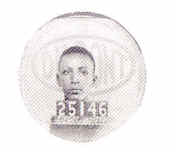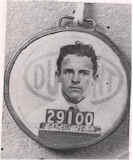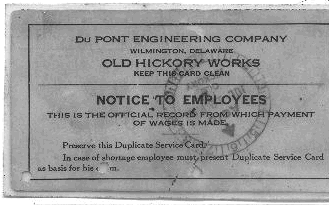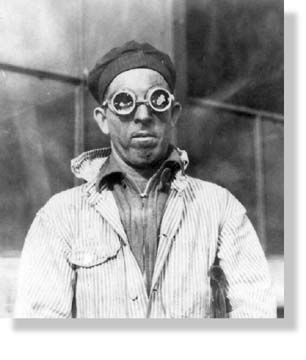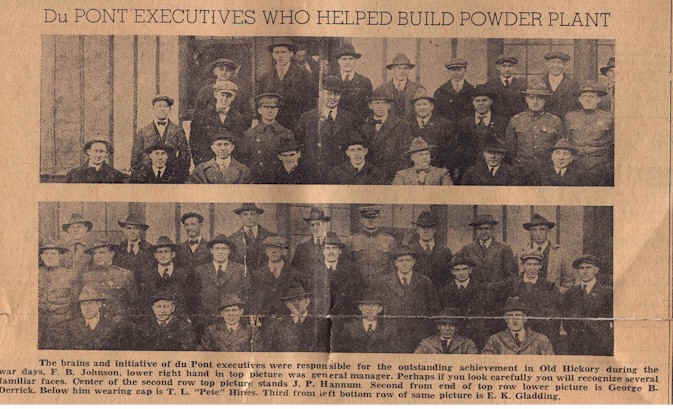 |
 |
|||||
Handling New Men Among the hardest working men at the powder plant are the clerks in the employment office, who are kept in a rush from early to late signing up the mechanics, carpenters, laborers and others seeking employment at the plant. Although "signing up" a man is a comparatively simple task, and requires but a few minutes for each man, there have been so many new men coming to the plant within the past few days that the large force of office men are unable to handle them as fast as they come in. Yesterday, some who went to the plant early in the morning did not get their employment cards until far into the day, and it was late last night before all the applicants had been signed up and assigned to quarters. The employment office was filled again this morning, and the day will be a repetition of yesterday. The men were sent to the plant from the Nashville office. Under the employment plan now followed, men seeking work report to the Nashville office, and, if it appears to the men in charge that they are suitable for the positions they seek they are given passes, which admit them to the plant. At the plant they are given employment cards, assigned to quarters, vaccinated and assigned to their work.
This time card belonged to Neil Hancock's (Sontara®)great uncle, John "Harvey" Morris. Harvey worked at the Powder Plant, but died from pneumonia later in 1918 on the USS Anthem on his way to combat in WWI. Neil's grandfather said that when Harvey died, he could see the coast of France. The doctors at the first-aid hospital are also leading a strenuous life, for every new man who comes in must be vaccinated, unless he can show a satisfactory scar from a previous vaccination. Sometimes the number vaccinated within a day goes far beyond the thousand mark. With the rapid influx of new men, almost every bunk house is filled to its capacity, and it is at times hard to find sleeping places for the new comers. About a dozen new bunk houses, each of which will accommodate 200 men are being built to the rear of Virginia mess hall No. 1. Some of these are almost completed and will, within the week, be ready for occupancy. Note: when construction first began on the Powder plant, surveyors and supervisors lived in Pullman railroad cars while laborers lived in tents. Many of the fatalities of the time resulted from men being run over who were sleeping under railcars. The men who are now coming to the plant are, for the most part, sent here by government and private employment bureaus throughout this section of the country. Most of them are from western and middle Tennessee, Arkansas, Missouri and Illinois.
The Creed Proposed for DuPont Workers in 1918
|
||||||
